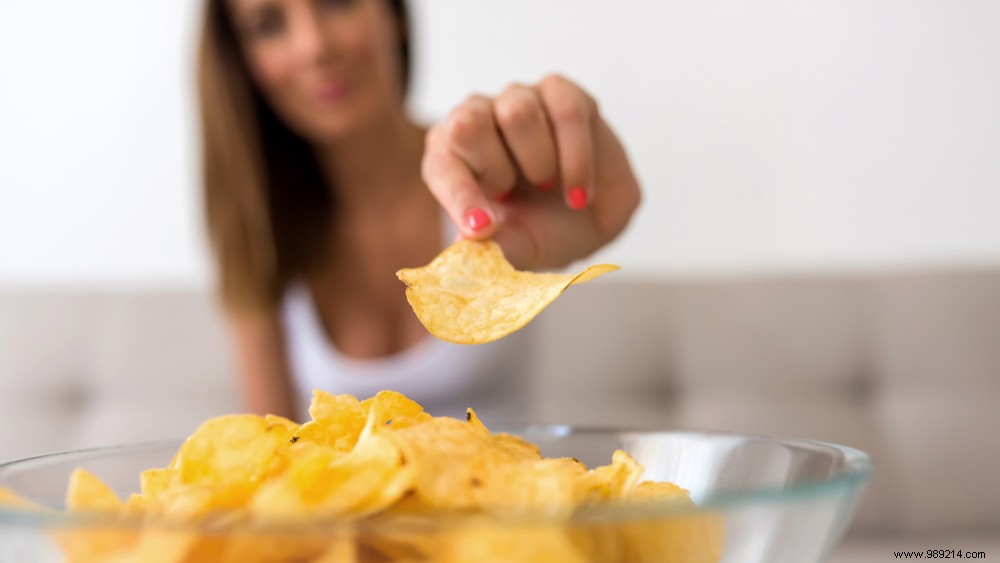
Food and happiness are inextricably linked. Who doesn't love a piece of cake or a bag of fries with lots of mayo? However, you have to ask yourself whether it is necessary to reach for these delicacies.
Emotional eating is about reaching for unhealthy food when you are not feeling well. You don't eat because you're hungry, but because you want to be happy. You may enjoy the first chip, but mindlessly you eat half a bag. Once you get used to linking food to a certain situation, you can't get rid of that so quickly.
For example:After a boring day at work, you think you deserve a glass of wine. Unnoticed, you increasingly seek refuge in unhealthy food. A croquette at the station can make you happy for a while, but afterwards you feel guilty because you ate unhealthy again. In fact, it doesn't solve anything.
Read also :'5 tips to eat less sugar'
Chances are you've learned emotional eating unconsciously. It often arises in childhood. If you used to be comforted with a candy by your parents or caregivers, you are now more likely to reach for a snack in a sad situation. Research indicates that emotion-eating parents or caregivers influence their children. These children are also more likely to be overweight at a later age.
Changing your pattern is not as easy as simply not bringing unhealthy food into the house or showing more willpower. Research shows that unhealthy food is harder to reject when you're stressed or don't sleep well. So the most important tip against emotional eating is:sleep well.
Are you in an unpleasant situation? Then try to write it off or go for a walk. Self-reflection is very important in this case. You will notice that you will be less likely to grab a snack after this. Do you ever reach for a bar of chocolate? Then don't feel guilty, but try to enjoy the happy moment.
Source:Santé January 2019 Text:Marion van Es